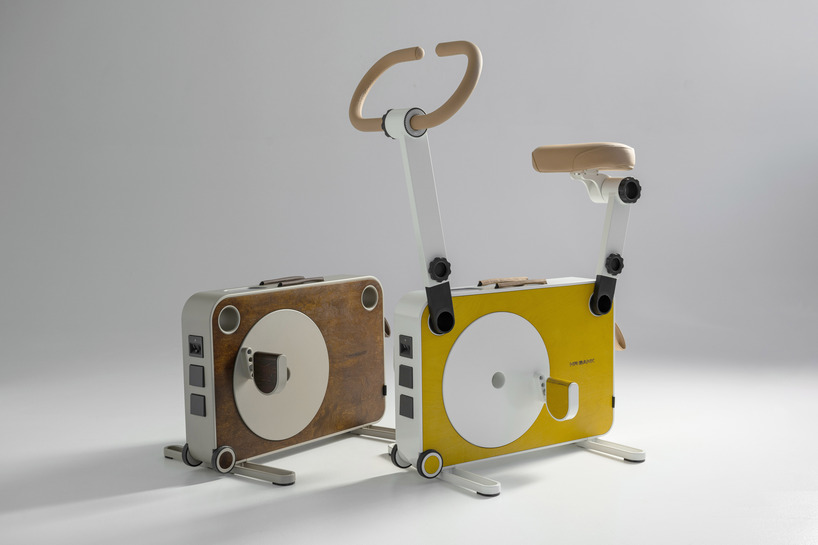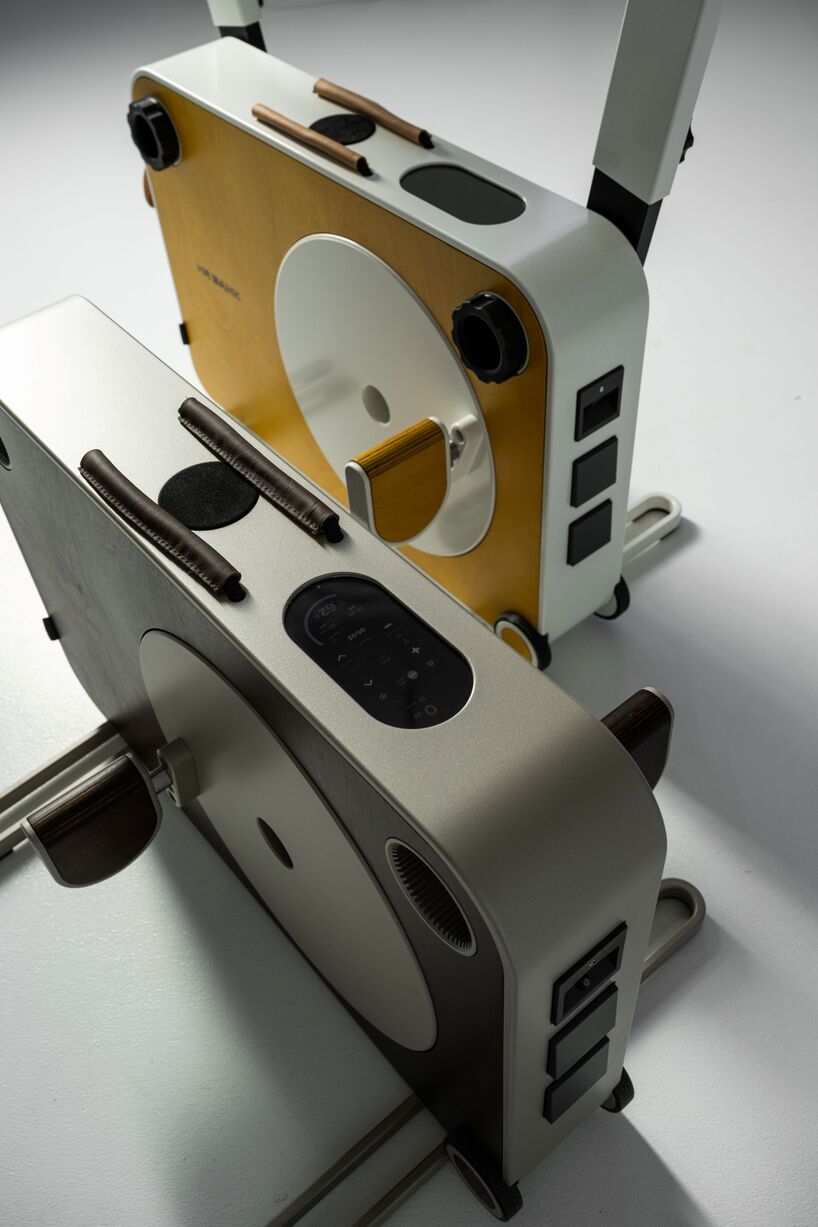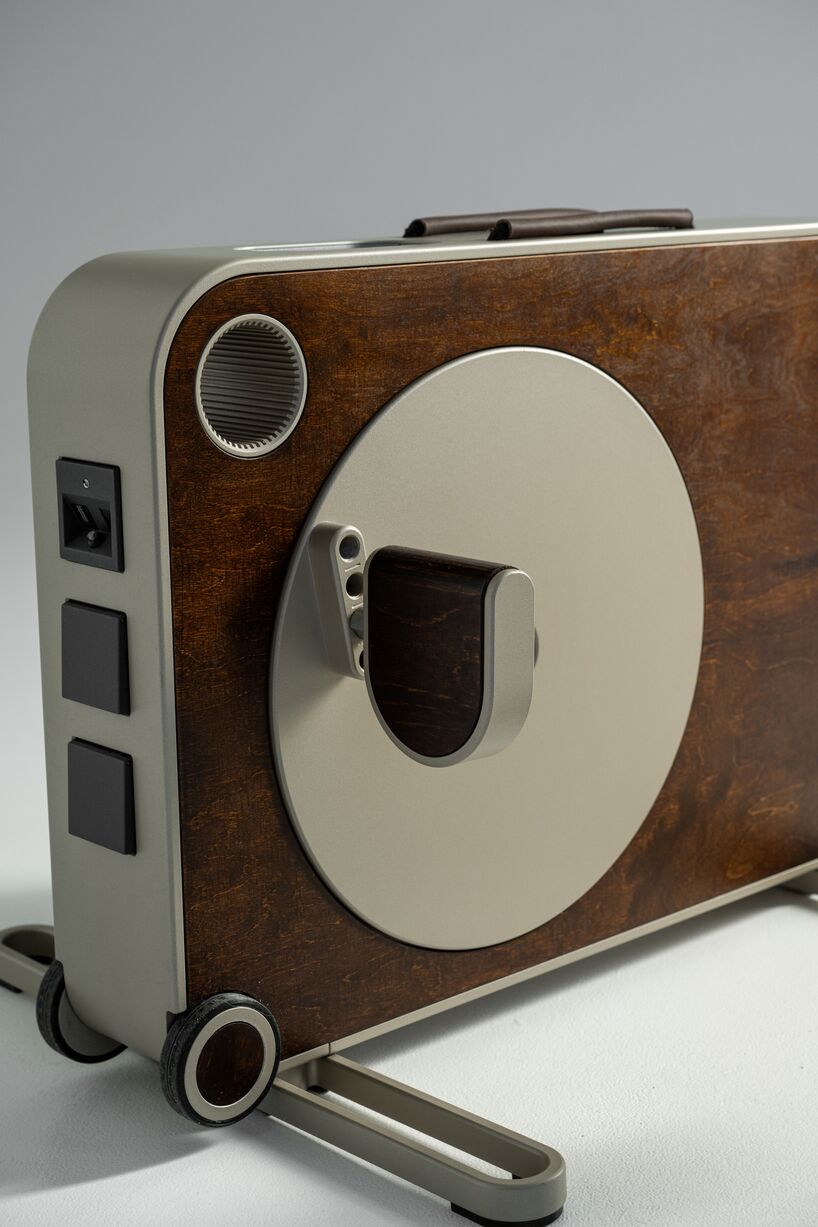[ad_1]
HR Bank exercise bike transforms kinetic energy into electricity
Lithuanian startup Tukas EV introduces the HR Bank, an exercise bike designed to convert kinetic energy into electricity. This system integrates fitness and energy generation, transforming pedaling and solar input into stored power within a 2000 Wh battery. A 15-minute cycling session can fully charge a smartphone, while an hour provides sufficient energy for a laptop. The HR Bank was developed with a focus on energy security and sustainability. The concept was influenced by the increasing need for independent power solutions in various settings, including off-grid locations and urban areas facing grid instability.

all images courtesy of Tukas EV
Tukas EV’s bike design uses recycled aluminum and birch plywood
Conceived by Lithuanian startup Tukas EV, the exercise bike is designed for integration into diverse spaces. In corporate offices, it promotes movement while generating electricity, while households can use it to store electricity for backup needs. Suitable for children, it converts activity into a controlled energy source for device usage, as seniors can benefit from light physical activity while producing power. Travelers can utilize it for off-grid energy in camper vans or remote locations.
The HR Bank is constructed from recyclable and environmentally responsible materials. The frame incorporates recycled aluminum, while FSC-certified birch plywood is used for side panels. Production prioritizes renewable energy sources, and in-house manufacturing ensures quality control and reduced environmental impact. Replaceable components extend the product’s lifespan, minimizing waste. By integrating energy generation into everyday activity, the HR Bank presents a functional approach to sustainable design, supporting both individual users and broader energy efficiency goals.

HR Bank transforms kinetic energy into electricity

designed for energy resilience in off-grid and urban settings

built with recycled aluminum and FSC-certified birch plywood
[ad_2]
Source link